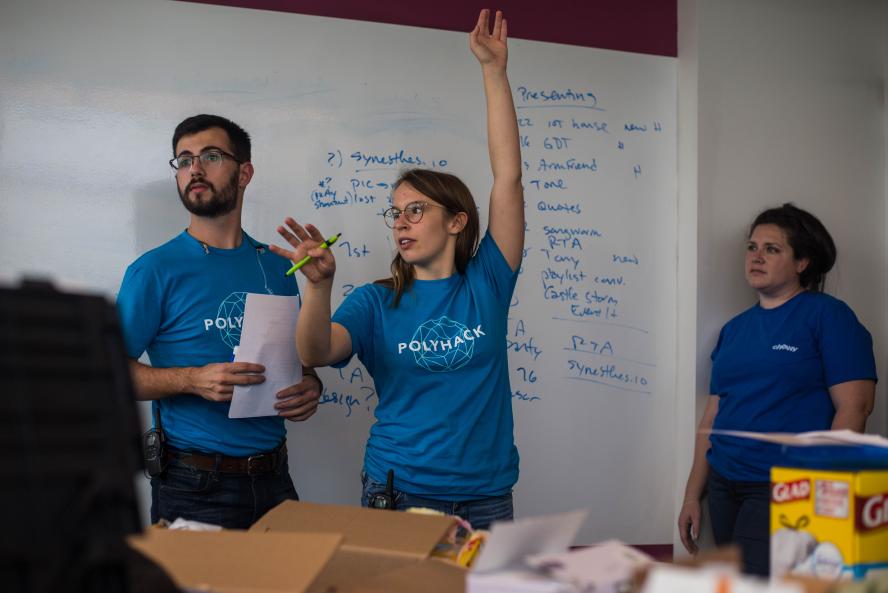Tufts students get creative at Polyhack

A number of student groups won prizes at the recent Polyhack hackathon on campus. Polyhack invites students to solve problems together and individually. Using skills and knowledge acquired in university and beyond, Polyhack participants work on tech challenges that encourage collaboration and creativity. Three hundred Tufts students participated in this year's student-run, student-focused hackathon, organized in a partnership between the Tufts Computer Science Exchange and Tufts.io.
The Polyhack Hardware Prize winners were a team of electrical and computer engineering students, Zachary Faber Manning, E19, Sam Gertler, E19, Joe Bessette-Denwood, E19, Diana Whealan, E19, and Emma Pannullo, E19. The team created Arm Friend, a three-axis, internet-enabled desktop robotic arm that can be controlled using a wireless controller connected by a UDP remote server, for low latency and possible long-distance control. The Arm Friend can also be controlled using WiFi.
The First Place prize went to Harrison Downs, E19, and James Hopkins, E19, of the Department of Computer Science, and Jason Iskenderian, E19, a student in the Electrical and Computer Engineering department. The team created GDT, or Game Dev Tool, an independent platform for users to make and play tile-based games, using a microcontroller and an LCD touchscreen.
Second Place winners Hao-Wei (Daniel) Lan, A20, Nimish Adhikari, E20, and Allen Zhou, E20, designed Totally Real Quotes, an app that generates fake quote memes using song lyrics. The app then uses Google Vision API to place the text on an image, all in under three seconds.
Trung Truong, E21, won the Polyhack Newcomer’s award for Automated House Model, a project that combined image processing and facial recognition using an esp32 IOT board. Truong controlled the house model over the internet, creating 6 LEDs that were controlled through a temporary server, and a gate that is triggered by facial detection.
Department:
Computer Science